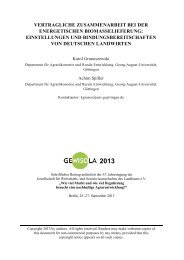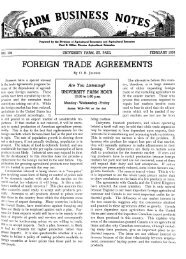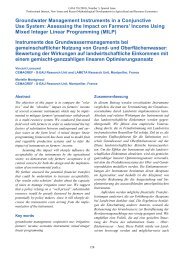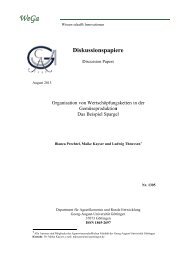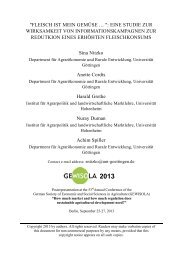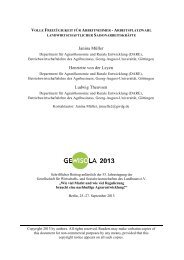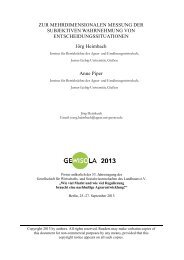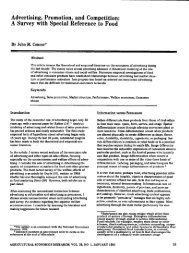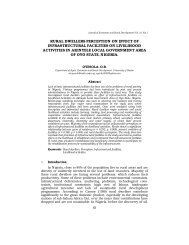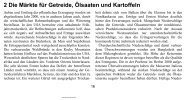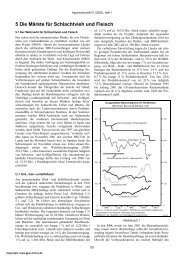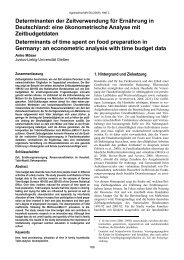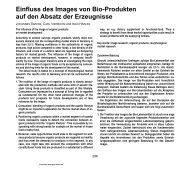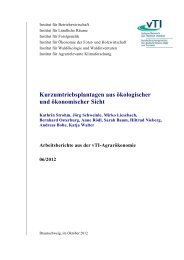District Institutes of Education and Training - Teacher Education
District Institutes of Education and Training - Teacher Education
District Institutes of Education and Training - Teacher Education
Create successful ePaper yourself
Turn your PDF publications into a flip-book with our unique Google optimized e-Paper software.
<strong>District</strong> <strong>Institutes</strong> <strong>of</strong> <strong>Education</strong> <strong>and</strong> <strong>Training</strong>: A Comparative Study in Three Indian States<br />
Policy issues for the DIET in a context <strong>of</strong> decentralisation<br />
• DIETs <strong>and</strong> their apex body have yet to develop the sense <strong>of</strong> partnership implied<br />
in decentralisation, rather than the hierarchical relationship <strong>of</strong> a centralised<br />
system. If decentralisation is to gather pace, State <strong>of</strong>ficials need to adjust their<br />
role away from supervision <strong>and</strong> towards one <strong>of</strong> consciously nurturing <strong>and</strong><br />
supporting DIETs to assist them in growing into their role. Perceptual barriers<br />
to operating in a decentralised way are constraints as real as operational<br />
obstacles <strong>and</strong> need to be consciously worked through in partnership.<br />
• An aspect <strong>of</strong> innovation <strong>and</strong> change management that emerges from this study<br />
is that when a new structure is introduced, or an old structure takes on a new<br />
role, all <strong>of</strong>ficials need a full induction to the innovation itself, <strong>and</strong> their own<br />
direct or indirect roles in supporting it.<br />
• As Cluster Resource Centres are rolled out, further resolution is required <strong>of</strong><br />
how they <strong>and</strong> DIETs should articulate with one another to achieve meaningful<br />
integration <strong>and</strong> create feedback loops. The trends reported here reveal differing<br />
levels <strong>of</strong> integration <strong>and</strong> underst<strong>and</strong>ing <strong>of</strong> the need for that integration,<br />
indicating a need for some DIETs to receive more concentrated support than<br />
others to achieve integration with the Cluster Resource Centres.<br />
• The impact on DIETs <strong>of</strong> an external initiative that almost usurped their<br />
functions has been recorded here, <strong>and</strong> noted by the Sarva Shiksha Abhiyan.<br />
Madhya Pradesh has been a pace-setter in achieving convergence through major<br />
institutional reform <strong>and</strong> there may be a need for Gujarat <strong>and</strong> Rajasthan State<br />
Governments also to consider where duplication <strong>and</strong> overlap are creating role<br />
conflicts <strong>and</strong> reducing efficiency.<br />
10.2.7 Pr<strong>of</strong>essional development through collaborative action research with<br />
DIETs<br />
Chapter Seven showed that research was a neglected area <strong>of</strong> DIET functioning,<br />
<strong>and</strong> had hitherto been used to meet the information needs <strong>of</strong> the State rather than<br />
as a means <strong>of</strong> helping DIETs immerse themselves in underst<strong>and</strong>ing local teachers’<br />
concerns <strong>and</strong> how the DIET might respond to them. Collaborative action research<br />
emerged as a tool for pr<strong>of</strong>essional development with DIET staff in the three sites<br />
that opted into this project str<strong>and</strong>. DIET staff initially focused on concerns they<br />
could do little to address <strong>and</strong> made assumptions about teachers that were challenged<br />
by the project team, leading to investigation via action research. Five topics emerged<br />
from the DIETs: a) on teachers’ attitudes to change; b) transmission loss in the<br />
cascade model; c) time management in the DIET; d) teacher motivation; <strong>and</strong> e)<br />
language teaching. Project a) generated a wealth <strong>of</strong> detail that provided the DIET<br />
with clear indicators <strong>of</strong> teacher expectations about their role, underst<strong>and</strong>ings <strong>of</strong><br />
policy messages, <strong>and</strong> current concerns. Project b) prompted reflection on the<br />
relevance <strong>of</strong> training <strong>and</strong> on trainers’ own training needs, <strong>and</strong> revealed a strong<br />
198 DFID



